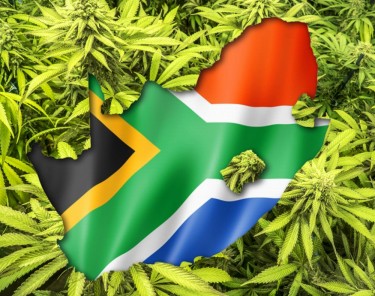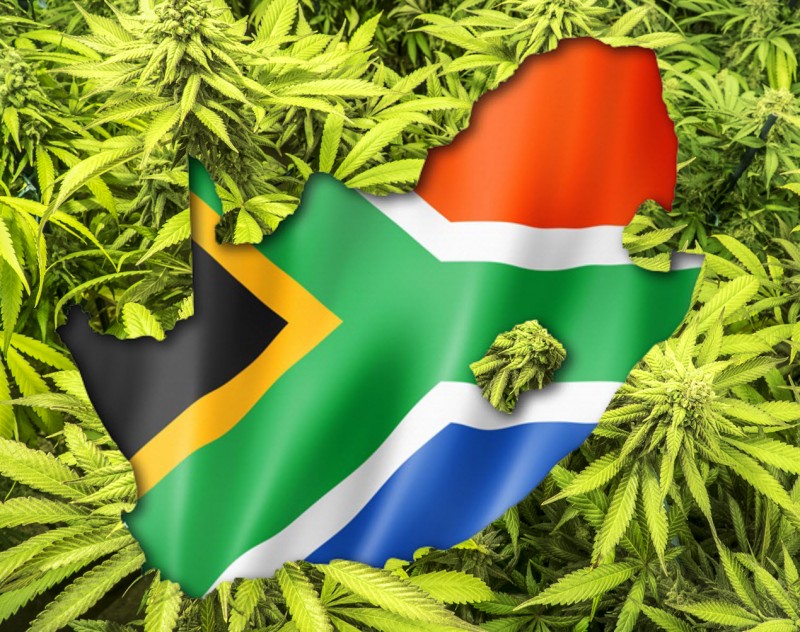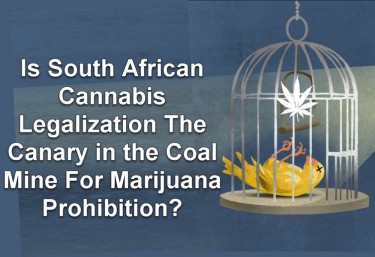How South Africa’s Cannabis Plan Could Spark International Cannabis Commerce

South Africa unveiled a $1.9 billion plan to establish their cannabis industry, which undoubtedly will begin to spark international commerce over the coming years. The idea is to create 25,000 new jobs and attract foreign investment.
After two years, the Department of Agriculture, Land Reform and Rural Development worked on a strategy to implement a national strategy to industrialize the trade. After studying places like the US, Mexico, Canada and China, they finally unveiled their master plan.
“Establishment of the cannabis industry will lead to diversification of the economy and thus increase economic growth, create jobs and for poverty alleviation,” the department said.
They believe that one of the biggest threats to the industry is corporate takeover – which has been one of the major concern for activists for some time now. For example, California and New York essentially laid the foundation for giant mega-corporations to dominate the industry.
Their master plan includes both hemp and marijuana and should begin to be implemented over the next few years.
Of course, some people in the West might not care too much about what’s happening in the Southern Hemisphere – however, what we’re beginning to see is the initial forms of international cannabis trade.
South Africa has historically been a place of trade…
South Africa originally was the port between the British Empire and India, where ships would frequently dock for resupply prior to making the trip to either destination. It’s one of the reasons why the Brits were so interested in this strategic geographical location.
While these days it is no longer necessary to travel all the way to the southern tip of Africa, it still plays a significant part in African policies. If South Africa embraces a full industrialization of cannabis and hemp – it is only a matter of time until other African nations follow suit.
More importantly, South Africa already has some trade arrangements with places like Mexico – which means that there’s a definite possibility that once Mexico gets their system up and running, that international commerce could be next.
How South Africa might impact the global trade…
If there’s one thing about South Africans that the world needs to understand – they are a very innovative bunch of people. This could possible stem from their forced isolation due being excommunicated from the international community due to their Apartheid policies.
Nonetheless, South Africans will be pushing the envelope when it comes to cannabis development, both in technology and phenomics – bringing African genetics into the world market.
There are vastly unexplored areas within the African Continent – strains like Durban Poison and Swazi Gold are internationally recognized as “good strains” – however, what happens when Africans begin to discover other strains?
What happens when these genetics begin merging with western strains?
We can expect an explosion of new combination of cannabis and hemp varieties hitting the international marketplace over the next five to ten years.
South Africa has a strong cannabis presence already
South Africa legalized home cultivation and cannabis consumption since 2018. During these three years we have seen a significant boost in pro-cannabis attitudes.
While there is still some reservations from older generations, the newer generations of South Africans have fully embraced cannabis.
If the South African Master Plan manages to provide enough leeway for smaller farms to participate in the cannabis market, it could serve as an example for other countries to follow.
What’s stopping international trade right now?
While there certainly are international commerce occurring, such as Canada buying cannabis from Jamaica – it is still not as “global” as one would think.
There are only a handful of countries that currently have legal cannabis on the books and while they would love to trade – international treaties make it difficult.
Currently – it is the United States that is the major stumbling block for international trade since they are arguably the biggest supporters of these international restrictions – at least in a historical sense.
There is a major push from activists and certain politicians to remove the federal barriers to cannabis by removing the plant entirely from the CSA.
Once this occurs, the United States will begin opening its borders for cannabis trade and considering that Mexico and Canada already have legal cannabis on the books – we can expect the North American Cannabis Treaty to establish.
This would open up the flood gates for international legalization since the biggest opposition – The United States – would be now part of the trade.
We’re moving slowly, but we’re moving!
It’s been a lot slower than most cannabis activists anticipated, but this is mainly due to opposition within political ranks.
US activists believed that the Biden Administration was a sure-fire way to fast track legalization, however the attitude of the current administration has echoed the old “Drug Warrior Sentiment”. After all, one of their first official acts was to fire staffers for consuming cannabis.
Kamala Harris, the Trojan horse – flipped from being a “hardened Attorney General” who sent thousands of people to jail for cannabis to being one of the sponsors of the MORE Act. A bill that would have provided a significant advance for legalization on a federal level.
Once elected, she quickly flipped back from “Pro” to “let’s wait and see”.
This may indicate that the move to support cannabis was purely political – seeing that she is now the vice President and rolled back her support from cannabis reform.
Irrespective of the administration’s desire to slow down legalization, lobbyists have been receiving funding from billionaires, endorsements from companies such as Apple and Amazon.
It is now only a matter of time before the United States unveils their “master plan” for federal legalization which would then spark the global community to follow suit.
We’re not far off – but who knows when this will actually happen? The Biden administration has been hiding behind Covid to avoid dealing with Cannabis – yet there really is no longer anything they can do to completely stop legalization.
With South Africa, Mexico, Canada, Uruguay, Colombia, and many European nations going “online” for cannabis – international cannabis trade is around the corner.
SOUTH AFRICAN CANNABIS, READ MORE...
CANNABIS LEGALIZATION IN SOUTH AFRICA? WAIT, WHAT?
OR..
SWIMMING WITH THE SHARKS IN SOUTH AFRICA'S LEGAL WEED MARKET!







